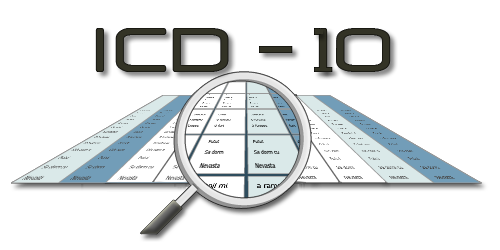What is unclaimed property: Patient credit balances legally belong either to the patient or the state. Even if they’ve been held on your books for a long period of time, they still do not belong to the practice. If credit balances sit “abandoned” for three years or more, the money is considered unclaimed and therefore the property of the state. This is true whether the balance belongs to a current patient, past patient, deceased patient, or any other permutation of a patient. In most states, unclaimed property laws that pertain to the healthcare industry focus on insurance and patient credit balances. By state law, when this abandonment occurs, the practice is obligated to turn the money over to the state.
Medical Billing Blog
What Medical Practices Should Do With Credit Balances
Newly released guidelines from the Federation of State Medical Boards of the United States warn physicians and other healthcare providers to err on the side of caution and professionalism in all cases when using social media, especially when dealing with current or past patients or the public at large.
Legal Issues To Consider When Implementing An EMR
Ralph Sitler III, JD--Many areas of industry welcome new technology with open arms, especially the medical field. Physicians and other health care professionals are always trying to find new and intrepid ways to improve patient care, increase efficiency, and boost the bottom line. However, there are often new risks associated with adopting new technology. This article aims to make physicians aware of some of these risks and help avoid potential legal issues concerning use of EMRs.
Medicare Bust Sheds Light On Alleged False Medical Billing
This week the government announced a record breaking Medicare fraud bust of the largest scope ever. 107 people were charged in what authorities said was the largest one-day take down ever for Medicare fraudulent billing. A federal health care fraud strike force conducted raids in seven cities yesterday, targeting individuals suspected of passing through more than $450 million in alleged false billing. Of the 107 people charged May 2, 2012, some were physicians, nurses and other health care professionals and the seven cities included Miami, Tampa, Chicago, Detroit, Houston, Los Angeles and Baton Rouge.
Medical Billing E-prescribe Requirements for 2013
Medical Billing requirements for Medicare's e-prescribe program are different this year from previous years. To avoid the E-prescribe penalties in 2013, providers must successfully e-prescribe 10 times on eligible claims for service dates of January 1, 2012 through June 30, 2012 and that are processed by July 29, 2012. This means the claims must fully negotiate the Medicare system and be paid prior to July 29, 2012, so it’s of paramount importance that providers make sure they are processing enough eligible claims to avoid the penalty. Furthermore, we recommend that claims be submitted before the end of May, because Medicare traditionally begins holding claims in June so they can be paid in the third quarter. Note that this suggested submission date is not a deadline leveled by Medicare, and there is no guarantee that claims submitted by the end of May will be processed by the end of July. There is also no way to tell what other issues may come up with individual claims that may prevent them from being processed. Therefore, professionals should try to e-prescribe on more than 10 claims to ensure that they meet the quantity threshold.
Code Freeze Extends Through ICD-10 Implementation
Since HHS has proposed a year-long delay of implementing ICD-10, questions have been asked regarding the current ICD-9 code freeze. CMS confirmed that the code freeze will hold until ICD-10 is implemented, regardless of the delay, according to Pat Brooks, RHIA, and senior technical advisor at CMS.
In a new press release from HHS, Secretary Kathleen Sebelius announced a proposed rule that would delay the compliance date for ICD-10 from October 1, 2013 to October 1, 2014.
8 Tips for Securing PHI -- From Medical Billing Resources
Maintaining the security of Protected Health Information (PHI) can be a menace to the modern physician. With all your other responsibilities, how are you to make time to study how to protect information and know what to do in case of a breach? It can be daunting to consider what could happen if your practice experiences a breach of security with this information, and it’s also confusing to know what needs to be reported and what does not.
Physicians Beware: Minors Have Special Rights for HIPAA Compliance
By Ralph Sitler III, JD--As all medical providers know, an extensive knowledge of HIPAA and its various regulations is key to a successful and compliant practice. Maintaining confidentiality of your patients and their health information should always be foremost in your thoughts when you are running your practice. However, some areas of HIPAA can prove to be confusing. One of these areas concerns the confidentiality provisions for minors and the ability of their parents to access their protected health information. This article will give an overview of applicable provisions to help clarify this topic and help keep your practice compliant.
Physicians May Be Forced To Retain Medical Billing Records For 10 Years
When it comes to retaining medical billing records, current guidelines require that records be retained for a period of four years—the “lookback” period during which the Centers for Medicare and Medicaid Services (CMS) has the right to amend payments made to physicians for whatever reason is deemed appropriate. However, CMS has proposed changing the current four year lookback period to a ten year lookback period—and retaining the right to conduct takebacks for that long, as well. The Proposed Rule was posted by CMS in the Federal Register on February 16, 2012. The proposed 10-year lookback period would be consistent with the False Claims Act statute of limitations under a provision of the Affordable Care Act. The effect of this change in the statute of limitations for taking back funds previously paid to providers is also consistent with the aggressive stance the OIG is taking toward healthcare fraud.




















